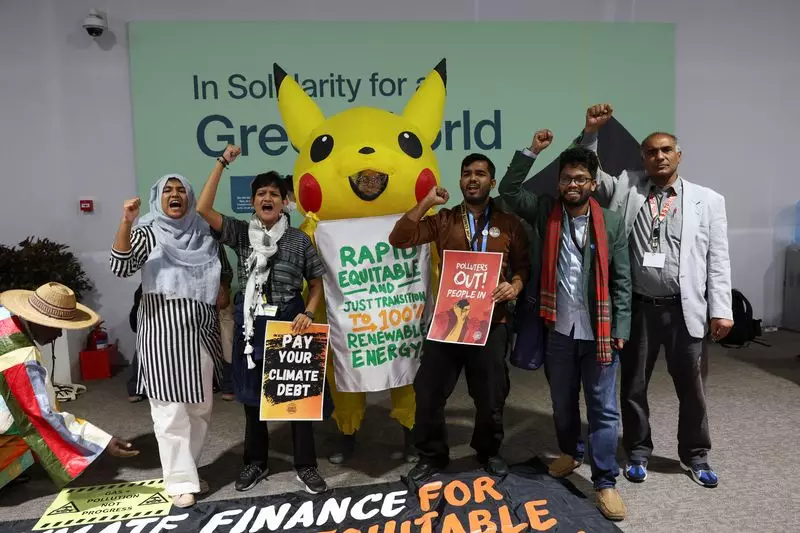As the climate crisis escalates and the world sees increasing, severe weather events, a consortium of nations grappling with conflict has made an urgent appeal for enhanced financial assistance at COP29, held in Baku. Their request, documented in a letter obtained by Reuters, aims to secure a monumental increase in financial aid—doubling it to over $20 billion yearly. This initiative emphasizes the dire circumstances faced by populations straddling the line between natural disasters and political instability, highlighting a unique intersection that often goes overlooked in broader climate discussions.
The importance of this request cannot be overstated. While the stakes are high for island nations and rainforest countries aiming to safeguard their natural habitats and livelihoods, conflict-affected regions are grappling with multifaceted challenges that exacerbate their vulnerabilities. As natural disasters increasingly disrupt lives and displace communities, the financial pathways to recovery become obstructed, particularly for those caught in the throes of war. Their call for funding becomes not just a plea but a necessity for survival in the face of overwhelming challenges.
Countries embroiled in ongoing or post-conflict situations face an uphill battle when it comes to securing investments for climate adaptation and resilience. These nations are often perceived as high-risk environments for private investors, rendering them reliant on international aid and UN funds. The repercussions of climate change are compounded in these places: displaced populations struggling to earn a living while battling the impacts of severe weather and ongoing political upheaval.
Furthermore, the recent establishment of the ‘Network of Climate-vulnerable Countries’ at COP29 seeks to create a cohesive voice for these fragile states. The initiative, bolstered by support from think tank ODI Global, aims to facilitate better access to climate finance, enhance member states’ capabilities, and curate platforms that will attract investment into high-impact projects. While many vulnerable nations are part of the G7+ coalition, the effort to unify and strategize collective bargaining power is commendable and necessary.
Nonetheless, the financial ask of a collective $20 billion per year by 2026 remains somewhat ambiguous in a fragmented global financial landscape plagued by competing priorities. Advocates assert that the unique struggles of conflict-affected countries warrant distinct consideration, as traditional financing strategies may not adequately address their specific predicaments.
Critics point out that the overall climate funding allocated to such regions fell significantly short in 2022, with estimates reflecting only a quarter of the required assistance. This alarming statistic underscores a broader narrative: while climate vulnerabilities are universal in their scope, the ramifications of these challenges are not evenly distributed. For example, a child born in South Sudan not only faces the societal impacts of a protracted civil war but is also statistically more likely to be displaced by climate-related disasters than children in developed countries.
The path to a solution lies in recognizing and addressing these disparities head-on. The dialogue at COP29 must evolve from generic appeals for climate financing to focused discussions on equitable distribution of resources that take into account the unique challenges of conflict-affected nations. While many nations have their own negotiating groups to advocate for climate aid, it is crucial to carve out space specifically for those enduring the harsh realities of war alongside climate crises.
The future trajectory of climate funds must be aligned with the pressing needs of the most vulnerable populations. Mauricio Vazquez of ODI Global articulates a critical point: the current climate funding mechanisms are underperforming and must be recalibrated to effectively support these nations. Strengthening climate resilience in conflict-affected areas is not just a moral imperative; it is essential for regional stability and global climate health.
In summation, the appeals from conflict-affected countries at COP29 are more than a mere funding request; they are a clarion call for justice and recognition in the fight against climate change. The international community must respond with urgency, ensuring that climate finance not only encompasses broad strategies but also prioritizes the unique needs of those trapped in the crosshairs of conflict and climate calamity.

